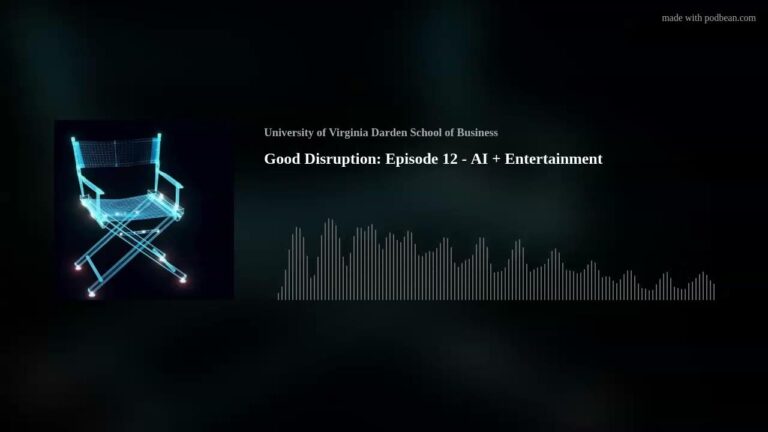AI’s Transformative Impact on Entertainment Careers: Navigating Change and Opportunity
Automation Reshapes Creative Roles in Entertainment
The entertainment sector is undergoing a profound change as artificial intelligence technologies increasingly automate tasks once reserved for creative professionals. Positions that involve repetitive or formulaic creative work‚ÄĒsuch as entry-level scriptwriting, basic storyboard creation, and standard video editing‚ÄĒare particularly susceptible to AI-driven disruption. Advanced AI applications now analyze audience preferences, generate dialog snippets, and compose background scores, substantially streamlining workflows. While these innovations boost productivity, they also raise concerns about job security for junior and mid-level creatives.
Roles most at risk of AI disruption include:
- Entry-level Scriptwriters and Content Developers
- Storyboard Illustrators working on routine projects
- Video Editors focused on standard cuts and color adjustments
- Music Producers creating generic soundtracks
| Position | Likelihood of AI Impact | Primary AI-Automated Task |
|---|---|---|
| Entry-level Scriptwriters | High | Automated dialogue and plot generation |
| Storyboard Illustrators | Moderate | Template-driven scene visualization |
| Video Editors | High | Routine editing and color correction |
| Music Producers | Moderate | Production of generic background music |
Animation and Scriptwriting: Frontlines of AI Disruption
Recent research highlights that animation and scriptwriting professions are particularly vulnerable to AI-driven changes, fueled by breakthroughs in machine learning and generative AI. These technologies can now autonomously create complex storylines and generate visual content, challenging traditional creative workflows. Tasks such as initial storyboarding, character conceptualization, and dialogue drafting are increasingly being automated, which may accelerate production timelines but also threaten roles heavily dependent on these functions.
Specific areas of vulnerability include:
- Scriptwriting: AI-powered tools can produce coherent story arcs and dialogue drafts, reducing the need for human-generated first versions.
- Animation: Automated animation software can generate detailed sequences more quickly and cost-effectively, impacting junior and mid-tier animators.
- Creative Progress: Rapid AI prototyping compresses creative cycles, limiting human input in early-stage concept iteration.
| Profession | AI-Driven Change | Resulting Role Evolution |
|---|---|---|
| Scriptwriter | Automated narrative drafting | Shift toward editing and creative refinement |
| Animator | AI-generated animation sequences | Focus on artistic direction and final polishing |
Adapting Skills for an AI-Enhanced Entertainment Landscape
Experts stress that versatility and continuous learning are essential for creative professionals aiming to thrive amid AI-driven industry shifts. As AI tools become integral‚ÄĒfrom automated scriptwriting to CGI enhancements‚ÄĒbroadening one‚Äôs expertise beyond traditional creative skills is crucial.For example, visual effects artists might benefit from learning programming languages, while voice actors could expand into audio engineering to stay competitive.
Key competencies recommended for future-proofing entertainment careers include:
- Technical Acumen: Mastery of AI software and digital tools relevant to one’s craft.
- Creative Agility: Integrating artistic skills with emerging technologies.
- Data Interpretation: Leveraging analytics to understand and predict audience preferences.
- Collaborative Mindset: Working effectively alongside AI systems and multidisciplinary teams.
| Profession | Recommended New Skills | AI Disruption Level |
|---|---|---|
| Scriptwriter | Algorithmic storytelling, adaptive content creation | High |
| Animator | 3D modeling, AI-assisted rendering techniques | Moderate |
| Sound Engineer | AI-driven audio mixing, machine learning fundamentals | Low |
| Voice Actor | Voice synthesis technology, advanced editing software | High |
Balancing AI Integration with Human Creativity in Studios
As AI technologies become more complex, entertainment studios face the challenge of incorporating these tools without compromising the unique value of human creativity. Rather than replacing artists, AI should be viewed as a collaborative partner that handles repetitive or time-intensive tasks‚ÄĒsuch as initial editing, visual effects automation, or script formatting‚ÄĒfreeing human creators to focus on storytelling depth and emotional resonance.This synergy can enhance both productivity and artistic authenticity.
Effective strategies for studios to safeguard creative integrity include:
- Establishing ethical frameworks that ensure proper credit and copyright protections for creators.
- Implementing hybrid workflows that combine AI-generated content with thorough human oversight and refinement.
- Promoting ongoing training so creative professionals can harness AI tools without losing their artistic voice.
- Maintaining clarity about AI’s role in content creation to help audiences appreciate the fusion of technology and human artistry.
| AI Function | Human Contribution |
|---|---|
| Initial Editing and Content Filtering | Creative Judgment and Final Production Decisions |
| Automated Visual Effects Generation | Artistic Direction and Conceptual Development |
| Script Formatting and Preliminary Analysis | Storytelling Craft and Dialogue Creation |
| Data-Driven Audience Insights | Emotional and Cultural Interpretation |
Looking Ahead: The Future of Entertainment in an AI Era
With artificial intelligence advancing at an unprecedented rate, its influence on the entertainment industry is becoming increasingly significant.The recent analysis featured by the Los Angeles Times offers a clear view of which creative roles face the greatest risk of AI disruption,providing valuable guidance for professionals adapting to this new reality. While AI holds the promise of enhancing both creativity and efficiency, it also demands vigilance and adaptability from industry participants. Ultimately, the entertainment landscape will evolve into a collaborative ecosystem where human ingenuity and clever machines work hand in hand, reshaping traditional roles and unlocking fresh opportunities for innovation.




